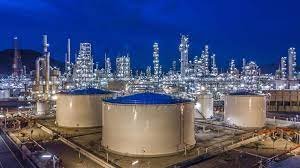The American chemical industry is currently experiencing significant changes, driven by economic pressures, technological advancements, and a growing emphasis on sustainability. Key developments include the rise of liquid contract manufacturing, innovations in sustainable practices, and the increasing integration of digital technologies.
Economic Pressures and Strategic Adaptations
Economic challenges, exacerbated by global trade tensions and the lingering impacts of the COVID-19 pandemic, continue to shape the strategic landscape of the chemical industry. Companies are adapting to slower economic growth projections, which the OECD has adjusted downward to 2.7% for 2024. This economic backdrop has pushed companies to innovate and optimize their operations, seeking out cost-effective and efficient solutions.
One strategic adaptation is the shift towards liquid contract manufacturing. This approach allows companies to outsource the production of liquid chemicals, optimizing supply chains and focusing on core competencies like research and development. By leveraging the expertise of contract manufacturers, chemical companies can achieve greater flexibility and efficiency in their production processes, which is crucial in a fluctuating economic environment.
Advancements in Sustainable Practices
Sustainability is a critical focus for the chemical industry, with increasing regulatory pressures and public demand for environmentally friendly practices. The industry is responding with significant investments in sustainable technologies and processes. For example, many companies are adopting circular economy principles, which aim to minimize waste and promote the recycling of materials.
Liquid contract manufacturing also plays a role in these sustainability efforts. Contract manufacturers often have the capacity to implement more advanced and efficient production techniques, reducing the overall environmental footprint of chemical production. By collaborating with these specialized manufacturers, chemical companies can enhance their sustainability profiles and comply with stricter environmental regulations.
Digital Transformation and Innovation
The integration of digital technologies is revolutionizing the chemical industry. Companies are increasingly adopting artificial intelligence (AI), machine learning, and Internet of Things (IoT) technologies to optimize their operations. These technologies enable better predictive maintenance, more efficient production processes, and enhanced decision-making capabilities.
Digital twins, which are virtual replicas of physical systems, are becoming more prevalent. They allow companies to simulate and optimize production processes in real-time, leading to significant improvements in efficiency and productivity. This digital transformation is essential for maintaining a competitive edge in a rapidly evolving market.
Moreover, AI applications in the chemical industry are facilitating the development of new materials and products. By analyzing vast amounts of data, AI can identify patterns and predict the performance of new compounds, accelerating the research and development process. This capability is particularly valuable in the context of liquid contract manufacturing, where precise and efficient production is paramount.
Regulatory and Environmental Challenges
The chemical industry faces stringent regulatory pressures aimed at reducing environmental impact and promoting sustainability. These regulations include limits on plastic production, enhanced recycling mandates, and stricter controls on emissions. Companies must navigate this complex regulatory landscape while maintaining their competitiveness.
Liquid contract manufacturing offers a solution to some of these challenges. Contract manufacturers often possess the specialized knowledge and infrastructure required to meet stringent regulatory standards. By outsourcing production to these experts, chemical companies can ensure compliance with environmental regulations while focusing on innovation and market expansion.
Market Dynamics and Competitive Landscape
The competitive landscape of the chemical industry is evolving, with significant regional dynamics influencing market share. For instance, China is moving towards self-sufficiency in petrochemicals, prompting global players to adjust their strategies. In response, American companies are enhancing their production capacities and optimizing supply chains to maintain their market positions.
Liquid contract manufacturing is increasingly seen as a strategic tool in this competitive environment. It allows companies to rapidly scale production in response to market demands without the need for significant capital investments in new facilities. This flexibility is crucial for maintaining competitiveness in a dynamic global market.
Future Outlook and Strategic Imperatives
Looking ahead, the American chemical industry is poised for continued transformation. Key strategic imperatives include embracing sustainability, leveraging digital technologies, and optimizing supply chains through approaches like liquid contract manufacturing. Companies that can effectively navigate economic pressures, regulatory challenges, and technological advancements will be well-positioned for success.
The focus on sustainability will likely intensify, driven by both regulatory requirements and consumer demand for environmentally friendly products. Innovations in digital technologies will continue to enhance efficiency and productivity, providing a competitive edge to companies that invest in these areas.
Liquid contract manufacturing will remain a critical component of the industry's strategic toolkit, offering flexibility, cost savings, and access to specialized expertise. By outsourcing production to experienced contract manufacturers, chemical companies can streamline their operations and focus on core competencies, driving innovation and growth.
In conclusion, the American chemical industry is undergoing a period of significant change, marked by economic challenges, technological advancements, and a strong emphasis on sustainability. By strategically leveraging trends like liquid contract manufacturing and digital transformation, companies can navigate this complex landscape and achieve long-term success.












![Wireless Connectivity Software Market Size, Share | Statistics [2032]](https://handyclassified.com/uploads/images/202404/image_100x75_661f3be896033.jpg)



